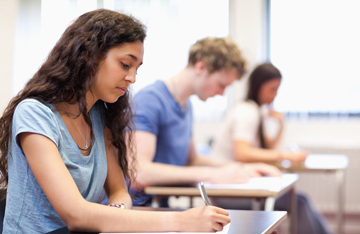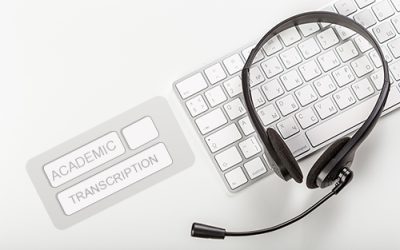
Both professors and students can record lectures. However, a new Swinburne-based study has found that though students widely support this strategy, academics are skeptical about the practice of recording lectures in classrooms. According to another report, Grand Valley State University (GVSH), a public liberal arts university located in Michigan, has announced that students do not have a right to record lectures in the classroom without permission from their professors.
Lecture recording capture entire lectures and store them online, allowing students to access them for learning anywhere and anytime on their own devices. There are many benefits to recording classroom lectures. It can be a useful strategy to help students who miss all or part of class, or who find that their notes are incomplete. Unlike readings and notes that need to be deciphered, a video provides students with instant access to information exactly as delivered by their professor. They can rewind and follow the recording in real time. The Swinburn researchers found that students use lectures to
- revisit and clarify complicated or confusing topics
- prepare for exams
- learn at their own pace
- improve their overall learning experience
- help balance academic schedules and maintain study-life balance
The researchers examined how the lecture-recording system was used by both Swinburne students and lecturers in the context of teaching and learning. Their findings are as follows:
- Just over 70 per cent of student respondents said that the ability to use lecture recordings benefited them in their learning.
- Nearly 70 per cent of students want recordings to be available for all of their study units.
- Students felt that having access to lecture-recordings made their busy lives less stressful.
- Eighteen per cent said lecture-recording helped them stay in a class and not drop out of the course.
- Non-English speaking students background said that watching recordings helped them improve their comprehension of lecture content and improved their academic experience.
- Lecture-recordings allowed students to better understand lecturers with strong accents.
While the researchers found that lecture capture offered many benefits for students, they report that 72 percent of lecturers in the sample did not support lecture recording.
GVSU’s problem with recordings made during lectures is the lack of consent from the professor and other students in the classroom or lecture hall. According to the university’s updated guidelines which were recently shared with faculty:
“Students do not have the right to record classroom lectures and discussions without securing prior permission from you, but do have the right to take written notes (or typed notes on a computing device).”

A Grand Valley Lanthron report cites Edward Aboufadel, assistant vice president for academic affairs at GVSU as saying, “If you have a situation where there is sort of unfettered recording in courses, one problem you have is they are recording all the other students in the class, too” …”Perhaps the student will be quoted out of context; perhaps the professor will be quoted out of context.”
This is an issue that needs to be sorted out between the students and the professor. Students should ask for the professor’s permission before they begin recording, and the professor should make their answer clear to the class. However, there may be students who needs to record because of a learning disability or for medical reasons. For instance, deaf students generally record the classroom lectures and get digital transcription agencies to transcribe the content into closed caption for them to read. The new GVSU rules say that students with special needs who need to record lectures should discuss the matter privately with the professor and seek help from GVSU Disability Support Resources (DSR).
Academic transcription services help students not just with lectures. Experienced outsourcing companies can accurately convert audio/video recordings into text format. They can accurately transcribe presentations, seminars, interviews, focus groups, dissertation work, group discussions, oral history, webcasts, and podcasts. The support of an affordable transcription service provider can go a long way in helping students save time and focus on their work.



